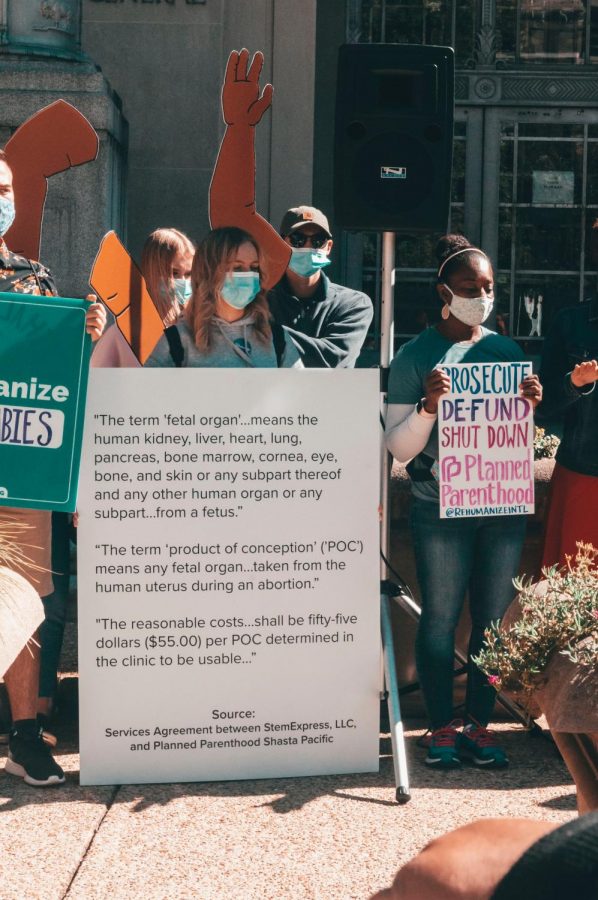Could Roe vs. Wade Be Overturned?
December 16, 2020
Roe vs. Wade was a famous U.S supreme court case settled in 1973 which ruled the Consitution protects a pregnant woman’s right to an abortion, without excessive government restriction. Prior to 1973, the decision of abortion legality was made on a state-to-state basis.
The case made its way up to U.S. supreme court after, Norma McCorvey, a pregnant Texas woman, challenged Texas anti-abortion laws, under the pseudonym “Jane Roe” against the infamous Texas lawyer, Henry Wade. Roe was favored in a 7-2 vote which settled; anti-abortion laws violated a woman’s right to privacy but the government still had a responsibility to protect potential life. Thus three-trimester regulation was created to limit how far into a pregnancy a woman can receive an abortion.
Three-trimester regulation:
- (week 1-12) cannot regulate, must have a licensed doctor perform the abortion
- (week 13-26) may regulate if related to the health of the pregnant woman
- (week 27-birth) prohibited unless as a means to save the life/health of the mother
Roe vs. Wade has become the golden rule in protecting a woman’s autonomy and right in her reproductive decisions. Still, state governments pass restrictions to undermine Roe vs. Wade. In the year 2020, there has been a flare-up of fearing concerning the overturning of Roe vs. Wade. Mostly due to the nomination of conservative supreme justices such as Amy Coney Barrett and Brett Kavanaugh, and governors’ manipulation of the response to Covid-19 with an increase in the regulation of abortion.
Fortunately, it is highly unlikely an overturning will occur. The supreme court abides by the legal principle stare decisis, meaning the adherence to precedence. Roe vs. Wade is no doubt a precedent.
An overturning of the case is not of concern, but future legal cases might slowly outdate Roe vs. Wade, making regulation easier to enforce. And regulation may continue to chip down the rights a woman has to abortion.
Regulation:
Since 2011, 400 restrictive laws have been passed by legislators as a means to decrease access to abortion. The regulations target those with low income, minorities, and the disabled.
Types of regulations:
Gestational bans- A ban after a certain point in the pregnancy, usually six weeks at a point when the pregnancy usually goes unnoticed.
Method bans- A ban on a particular method of abortion, often a dilation & evacuation procedure, which is the safest for 2nd-trimester abortion.
Medically-unnecessary requirements- Usually add cost, wait-time, and offers misleading information to deter abortions.
Parental involvement laws- Parental consent or/and notification for approval limit a young person’s autonomy.
TRAP laws- Unnecessary requirements for clinics and providers to meet.
Trigger bans- Certain states have automatic anti-abortion laws that will become active if Roe vs. Wade is overturned.
The legal system is accountable for determining whether regulatory laws/restrictions are constitutional. Recently many new restrictions have been passed:
Florida’s parent’s consent law was passed in June of this year. The law requires written consent from the parents or judicial bypass. Parent consent laws target immigrant youth who lack documentation and are then sent to immigration enforcement when seeking an abortion.
Conversely, there is positive progression, such as Virginias’ Reproductive Health Protection Act (RHPA) which was signed in April of this year. The act eliminates abortion barriers like a mandatory ultrasound and a 24 hour waiting period.
The constant battle of restriction laws is not ending soon. Restrictive laws are being challenged in courts every day, but that is not enough. Yes, it is unlikely Roe vs. Wade will be overturned but restrictive laws still affect a woman’s access to abortion every day. It’s not a simple answer of pro or anti-abortion for the country, but how many women have access to medically-safe abortions? Why are regulations being passed with clear motives besides protecting the health of women?
Abortion has always been a controversial and dichotomous topic. It’s difficult to cultivate change when arguments are still focused on the moral opinions towards abortion versus the current regulations that decrease access to a medical service. Roe vs. Wade is the standard, instead of debating its overturning which has been a precedent for almost 50 years, let’s spread awareness about how the government can improve abortion access to millions of women in America.












